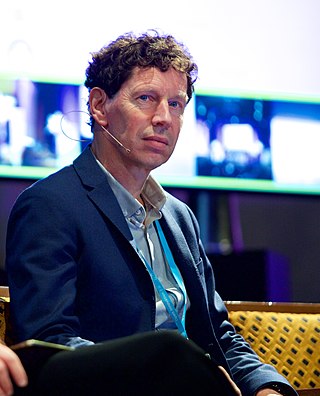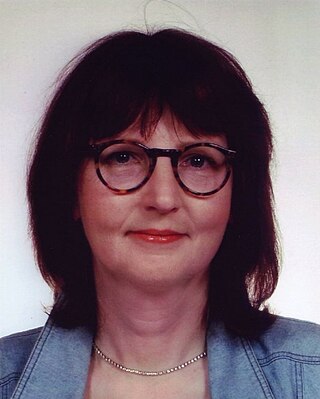Related Research Articles

The Vrije Universiteit Amsterdam is a public research university in Amsterdam, Netherlands, being founded in 1880. The VU Amsterdam is one of two large, publicly funded research universities in the city, the other being the University of Amsterdam (UvA). The literal translation of the Dutch name Vrije Universiteit is "Free University". "Free" refers to independence of the university from both the State and the Dutch Reformed Church. Both within and outside the university, the institution is commonly referred to as "the VU". Although founded as a private institution, the VU has received government funding on a parity basis with public universities since 1970. The university is located on a compact urban campus in the southern Buitenveldert neighbourhood of Amsterdam and adjacent to the modern Zuidas business district.

Sociocybernetics is an interdisciplinary science between sociology and general systems theory and cybernetics. The International Sociological Association has a specialist research committee in the area – RC51 – which publishes the (electronic) Journal of Sociocybernetics.

In sociology, social complexity is a conceptual framework used in the analysis of society. In the sciences, contemporary definitions of complexity are found in systems theory, wherein the phenomenon being studied has many parts and many possible arrangements of the parts; simultaneously, what is complex and what is simple are relative and change in time.
Second-order cybernetics, also known as the cybernetics of cybernetics, is the recursive application of cybernetics to itself and the reflexive practice of cybernetics according to such a critique. It is cybernetics where "the role of the observer is appreciated and acknowledged rather than disguised, as had become traditional in western science". Second-order cybernetics was developed between the late 1960s and mid 1970s by Heinz von Foerster and others, with key inspiration coming from Margaret Mead. Foerster referred to it as "the control of control and the communication of communication" and differentiated first order cybernetics as "the cybernetics of observed systems" and second-order cybernetics as "the cybernetics of observing systems". It is closely allied to radical constructivism, which was developed around the same time by Ernst von Glasersfeld. While it is sometimes considered a break from the earlier concerns of cybernetics, there is much continuity with previous work and it can be thought of as a distinct tradition within cybernetics, with origins in issues evident during the Macy conferences in which cybernetics was initially developed. Its concerns include autonomy, epistemology, ethics, language, reflexivity, self-consistency, self-referentiality, and self-organizing capabilities of complex systems. It has been characterised as cybernetics where "circularity is taken seriously".
Albert Benschop was a Dutch sociologist with the University of Amsterdam's faculty of Social and Behavioral Sciences. He was the chief editor of the university's SocioSite project. His internet studies are published in the Peculiarities of Cyberspace.

Frank van Harmelen is a Dutch computer scientist and professor in Knowledge Representation & Reasoning in the AI department at the Vrije Universiteit Amsterdam. He was scientific director of the LarKC project (2008-2011), "aiming to develop the Large Knowledge Collider, a platform for very large scale semantic web reasoning."
Walter Frederick Buckley was an American sociologist, and professor of sociology at the University of New Hampshire. Buckley was among the first to apply concepts from general systems theory based on the work of Bertalanffy to sociology
Gerard de Zeeuw is a Dutch scientist and Emeritus professor Mathematical modelling of complex social systems at the University of Amsterdam in the Netherlands. He is known for his work on the theory and practice of action research, particularly on the "Problems of increasing competence", "Second order organisational research" and "Three phases of science: A methodological exploration".
Thomas Martin Baumgartner is a Swiss economist, known for his pioneering work in social systems theory with Walter F. Buckley, Tom R. Burns and others.
Roelf Johannes (Roel) Wieringa is a Dutch computer scientist who was a Professor of Information Systems at the University of Twente, specialized in the "integration of formal and informal specification and design techniques".
Hendrik (Henk) van der Flier is a Dutch psychologist, and Professor of Work and Organizational Psychology at the Vrije Universiteit Amsterdam and at its Kurt Lewin Institute (KLI), known for his work on comparability of psychological test performances.
Hermanus Johannes "Herman J." Adèr is a Dutch statistician/methodologist and consultant at the Vrije Universiteit, the VU University Medical Center and the University of Stavanger, known for work on Methodological Modelling and Social Research Methodology.
Sytse Strijbos is a Dutch academic, former lecturer of Philosophy of technology at the Vrije Universiteit in Amsterdam and at Potchefstroom University in South Africa, and chairman of the International Institute for Development and Ethics IIDE, known for his work on systems science.

Josephus Johannes Cornelis Maria (Joop) Hox is a Dutch psychologist and Professor of Social Science Methodology at the Utrecht University, known for his work in the field of social research method such as survey research and multilevel modeling.
Albert Frederik Gerhard Hanken was a Dutch mathematician, inventor, and Emeritus Professor of systems theory at the University of Twente, known for his contributions to the field of systems theory and social analysis.
Rudolf Felix Geyer is a Dutch sociologist and cybernetician, former head of the methodology section of SISWO at the University of Amsterdam, known for his work in the fields of Social alienation, and on sociocybernetics.
Lamoraal Ulbo de Sitter was a Dutch sociologist and Professor of business administration at the Radboud University Nijmegen, known for his seminal work in the field of sociotechnical system in the Netherlands.

Edith Desiree de Leeuw is a Dutch psychologist, statistician, research methodologist, and professor in survey methodology and survey quality, at the University of Utrecht. She is known for her work in the field of survey research.
Cornelis Johannes (Cor) van Dijkum is a Dutch sociologist, consultant and academic at the Utrecht University, known for his contributions in the field of methodology for complex societal problems.

Martine Theodora Bax is a Dutch-Canadian art historian and art critic in modern art. Her specializations are the work of Piet Mondrian and the relationship between art and Western Esotericism, especially Modern Theosophy and Anthroposophy.
References
- ↑ Kenneth D. Bailey (1994) Sociology and the new systems theory: toward a theoretical synthesis. p. 165)
- ↑ D. Ray Heisey (2000) Chinese perspectives in rhetoric and communication. p. 274
- ↑ Johannes van der Zouwen (1970) De Gereformeerden en de Vrije Universiteit: sociologisch onderzoek naar inhoud en ontwikkeling van de relatie tussen een instelling en haar recruteringsveld voor steunverlening. Alphen aan den Rijn: Samsom.